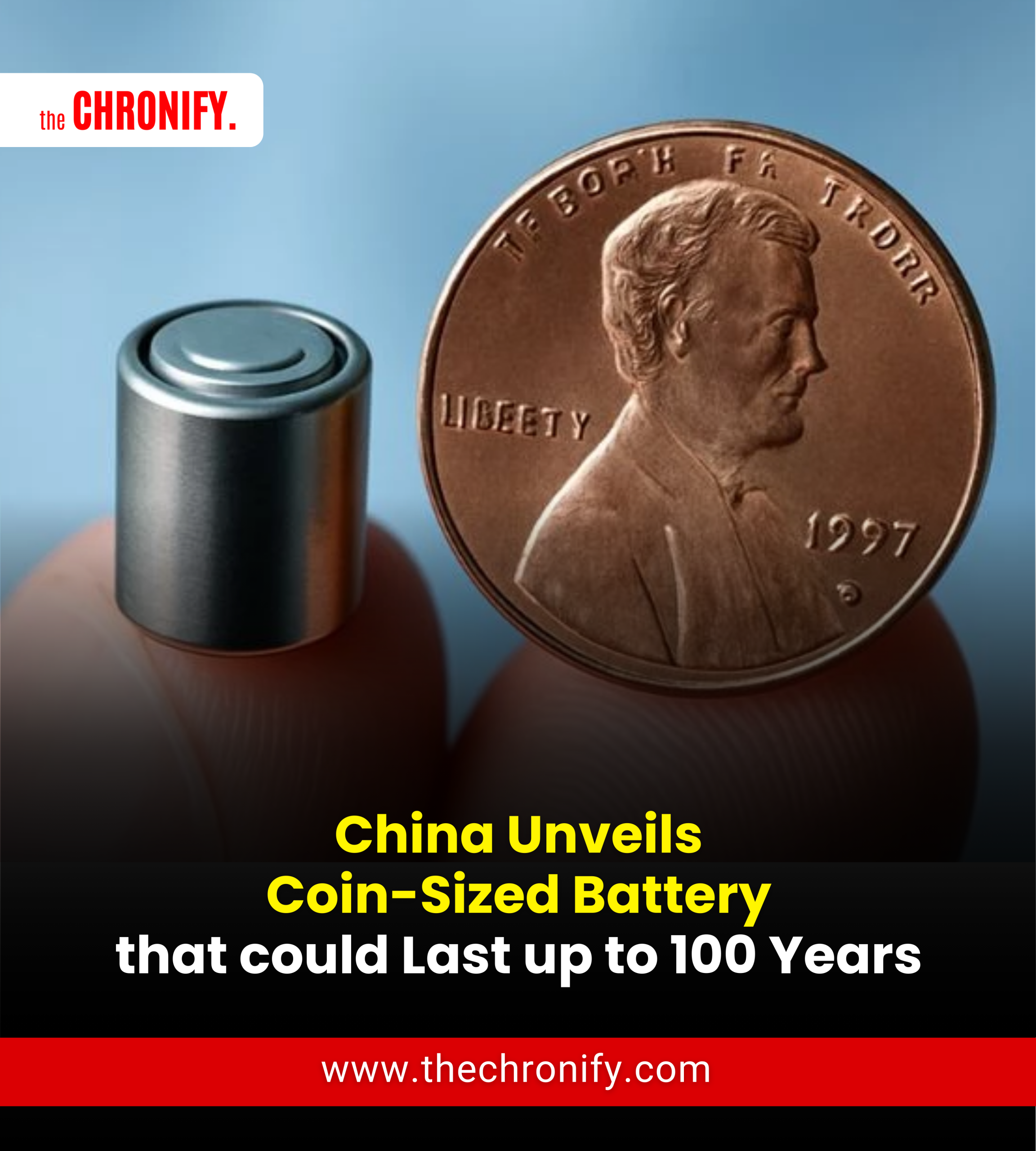China Develops Coin-Sized Nuclear Battery with 100-Year Lifespan
China has introduced a groundbreaking nuclear battery that could redefine long-term energy storage. Developed by scientists at Northwest Normal University, the device utilizes Carbon-14 and boasts a potential lifespan of up to 100 years.
This follows an earlier innovation by Beijing-based company Betavolt, which launched the BV100 battery—powered by Nickel-63—with a 50-year lifespan and applications in aerospace, medical equipment, and consumer electronics.
The latest battery marks a leap forward in nuclear energy technology, signaling China’s growing dominance in the field. Though Carbon-14 is rare, China has created a commercial reactor to extract it, allowing greater control over the supply chain—much like its lead in solar panel manufacturing.
Globally, the race to advance nuclear batteries is intensifying. The U.S.-based City Labs is developing a tritium-powered model for medical applications with a 20-year life span, while Britain’s Arkenlight is exploring nuclear waste-powered solutions. American firms Kronos Advanced Technologies and Yasheng Group have also partnered to boost nuclear battery research.
Although the concept of nuclear batteries dates back to the 1950s, widespread deployment was limited due to safety and longevity concerns. But rising demand for sustainable, long-lasting power sources—especially for use in space missions and medical devices—has renewed interest in this once-niche technology.
Experts believe nuclear batteries could significantly alter the global energy landscape as technological advancements and production capabilities continue to evolve.

